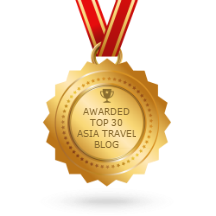
Embarking on a journey to new and exciting destinations is a thrilling experience, but unforeseen circumstances such as falling ill can quickly dampen the spirits of any traveler. Whether it’s a minor inconvenience or a more serious health concern, being unwell in an unfamiliar place can be disorienting. However, with a bit of preparation and the right knowledge, you can navigate the challenges of getting sick while traveling. In this article, we’ve gathered insights from health professionals to provide you with a comprehensive guide on what to do if you find yourself under the weather in a foreign land.
Prioritize Prevention: Staying Healthy on the Road
The first line of defense against illnesses while traveling is prevention. Health experts emphasize the importance of maintaining good hygiene practices, staying hydrated, and being mindful of what you eat. Avoiding tap water in certain regions, practicing proper hand hygiene, and being cautious with street food are crucial steps to reduce the risk of gastrointestinal issues and waterborne diseases.
Pack a Travel Health Kit: Be Prepared for the Unexpected
Before setting out on your journey, it’s advisable to assemble a travel health kit containing essentials such as prescription medications, over-the-counter remedies, a basic first aid kit, and any necessary medical documentation. Health professionals stress the importance of knowing your own health history and discussing your travel plans with your healthcare provider to ensure you have the necessary vaccinations and medications for your destination.
Seek Local Medical Assistance: Know Where to Go
In the event of illness, it’s essential to know how to access local medical assistance. Health professionals recommend researching healthcare facilities and emergency services in advance, including the locations of hospitals, clinics, and pharmacies. Familiarize yourself with the local emergency number, and consider using travel health apps that can provide information on nearby medical facilities and services.
Communicate Effectively: Overcoming Language Barriers
Navigating healthcare in a foreign country may pose challenges, especially if there are language barriers. Health experts emphasize the importance of learning basic medical phrases in the local language or carrying a translated medical document that outlines your condition and any allergies. Additionally, utilizing translation apps or seeking assistance from hotel staff can help bridge communication gaps with healthcare professionals.
Understand Your Insurance Coverage: Financial Preparedness for Medical Emergencies
Health professionals stress the significance of understanding your travel insurance coverage, including medical benefits and emergency evacuation provisions. Before embarking on your journey, review your policy to ensure it meets your needs. In case of illness, contact your insurance provider promptly and follow their guidance to navigate medical expenses and procedures seamlessly.
Stay Hydrated and Rest: The Basics of Self-Care
In the midst of an illness, it’s crucial to prioritize self-care. Health experts universally recommend staying hydrated, getting adequate rest, and listening to your body. Minor illnesses often improve with proper hydration and rest, allowing you to recover more quickly and continue enjoying your travels.
Know When to Seek Emergency Assistance: Red Flags for Immediate Attention
Understanding when to seek emergency assistance is paramount. Health professionals advise travelers to be aware of red flags, such as severe symptoms, high fever, persistent vomiting, or difficulty breathing. In such cases, prompt medical attention is crucial, and seeking assistance from local emergency services or your travel insurance provider is recommended.
Conclusion
While falling ill during your travels may seem daunting, being prepared and informed can significantly ease the challenges. Prioritize prevention, pack a comprehensive travel health kit, know where to access local medical assistance, overcome language barriers, understand your insurance coverage, practice self-care, and recognize when to seek emergency help. By following these guidelines from health professionals, you can navigate health challenges abroad with resilience, ensuring that your travel experiences remain positive and memorable.








